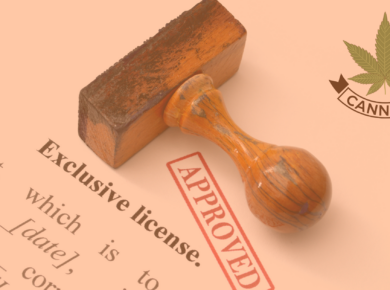Both THC (Delta 9-THC) and THCa (Tetrahydrocannabinolic Acid) are fascinating cannabinoids found in the cannabis and hemp plants. The distinguishing factors between them revolve around their chemical compositions and legal distinctions.
THCa, often recognized as the raw version of THC, thrives in unprocessed plant material. Technically THCa is non-psychoactive, which means it doesn’t induce the conventional “high” linked with cannabis consumption. Yet, when subjected to heat or sunlight, a phenomenon known as decarboxylation transforms THCa into THC which is. For this reason, you often will see THCa products labeled as psychoactive.
In contrast, THC acts as the primary psychoactive element in cannabis, responsible for the euphoric sensation that has attracted cannabis enthusiasts all throughout the world for thousands of years!
To sum it up, THC and THCa are different compounds but the end results can be similar. THC induces a high, while THCa technically remains neutral but can convert to THC. Both are fundamental components in the overall chemical profile of cannabis and hemp plants, yet one is federally legal and the other is highly restricted..
Many States allow federally legal ‘hemp derived’ cannabinoids under the 2018 Farm Bill as long as they contain less than .3% D9 THC. Some States have explicitly banned cannabinoids like Delta 8 or THCa, so check your local rules and regulations before purchasing.
Here’s the rules for Kush.com and more details
Frequently Asked Questions (FAQs)
- What differentiates THC from THCa?
- The crux of the difference between THC and THCa lies in their chemical structure. THCa, in its raw form in the cannabis plant, transforms into the psychoactive THC when exposed to heat or sunlight through decarboxylation.
- Does THCa induce a high like THC?
- Technically No. THCa doesn’t induce the renowned “high” of THC unless converted to THC. This distinction is due to THCa’s molecular structure, which doesn’t bind to the body’s cannabinoid receptors like THC does. The psychoactive properties emerge only when THCa converts to THC, often through methods like smoking or cooking.
- How does THCa transition into THC?
- The conversion from THCa to THC occurs via decarboxylation. Heat application instigates the removal of a carboxyl group from THCa, modifying its molecular structure and resulting in THC. Natural exposure to sunlight or heat can trigger this, or deliberate actions like cooking or smoking can expedite the process.
- Are there potential benefits to THCa?
- While we avoid making medical claims, preliminary research suggests THCa might have potential benefits owing to its interactions with the endocannabinoid system. Yet, comprehensive research is crucial to decipher these potential advantages fully.
- Do hemp plants contain both THC and THCa?
- Indeed, both THC and THCa are constituents of hemp plants. However, concentrations differ based on the specific hemp strain. Typically, hemp plants are bred to have high cannabinoid levels (like CBD or CBG) and minimal THC content due to regulation. THCa is less regulated than THC due to the 2018 Farm Bill, and in some states hemp products can possess THCa in its raw form.
- Are THC and THCa legal?
- The federal laws laid out in the 2018 Farm Bill state that hemp must contain less than .3% THC. This has been interpreted in many states to only include Delta 9 THC. In that case, THCa is technically allowed. THC on the other hand is highly regulated everywhere, and only allowed in legal recreational markets in concentrations over .3%. Here’s the rules for Kush.com and more details
Shop
Similar Product Searches You Might Be Interested In:





